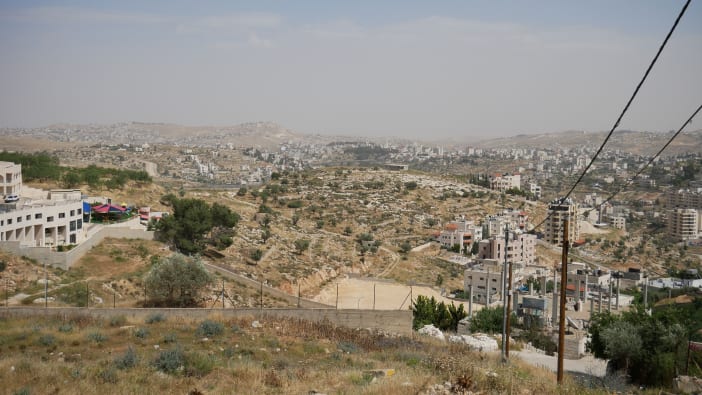This little light of mine
Written by Tearfund | 10 Jul 2020



Written by
Written by Tearfund
Joyce and Lamec used to fear for the future of their grandchildren – and for their safety. Their village in rural Tanzania had no electricity. Power lines connected to the national grid ran high above them. But the power was not for them, the cables instead supplied electricity to nearby cities.
Joyce, Lamec and their family are part of the two thirds of Tanzania’s population who do not have access to electricity. No power means no light, and being near to the equator there are 12 hours of darkness every day from around 6pm.
So, when the sun would set on Joyce and Lamec’s home – where they live with their children, grandchildren and extended family – almost everything stopped. No light meant no cooking, no time to sew or make things to sell, and no opportunity for children to read or do their homework.
And while they slept, other dangers emerged... ‘In the past, thieves would come in the night to steal our chickens and goats,’ says Lamec. Natural hazards such as hyenas, leopards, lions and scorpions would also emerge.
So the safest place was at home in the dark.
The cost of light
The alternative to darkness is to use candles, charcoal or kerosene lamps. All of these are expensive and a huge fire risk to their dry wood-framed and thatched-roofed homes. Despite this danger, nearly 90 per cent of energy used in Tanzanian households is from firewood and charcoal – usually gathered from nearby forests.
As well as being a dangerous and costly source of fuel, burning wood means stripping or cutting down trees. Recent reports suggest that the country has already lost nearly 40 per cent of its forest cover. If this continues, Tanzania will be forest free within the next 50 to 80 years.
But, of course, alongside the 12 hours of darkness, there are also 12 hours of (usually) consistent sunshine. This provides a clean, natural energy source that could be tapped into and used right away, rather than having to wait many years for the village to be connected to the grid.
Faced with these challenges, and in light of the potential solution, Tearfund’s partner, Anglican Church Diocese of Rift Valley, came up with a simple and innovative idea. They identified villages in greatest need and started to work alongside them to help them lift themselves out of energy poverty… and out of poverty full stop.
Seeing the light
Joyce and Lamec were increasingly frustrated that the lack of lighting at night was holding back the children’s education. So when they heard about the solar scheme, they were keen to get involved.
Joyce had already been invited through her local church to join a Pamoja group (which means ‘together’ in Swahili) to help her earn an income to support her family. These groups are set up through our local partners to help people come together and find solutions to lift themselves out of poverty.
Rift Valley Diocese introduced its solar light scheme through these groups. It’s a brilliantly simple and sustainable idea. Group members save up to pay for half of the cost of a solar lighting system. When they have done this, they are given a solar panel, lamp and battery so they can start to enjoy the benefits of light at night and electricity all day. Then, as their income and opportunities start to increase, they continue to pay back the cost of the light.
That way, not only have they bought the light themselves and feel ownership of the equipment, but the money paid back stays in their group and can be used to invest in more solar equipment.
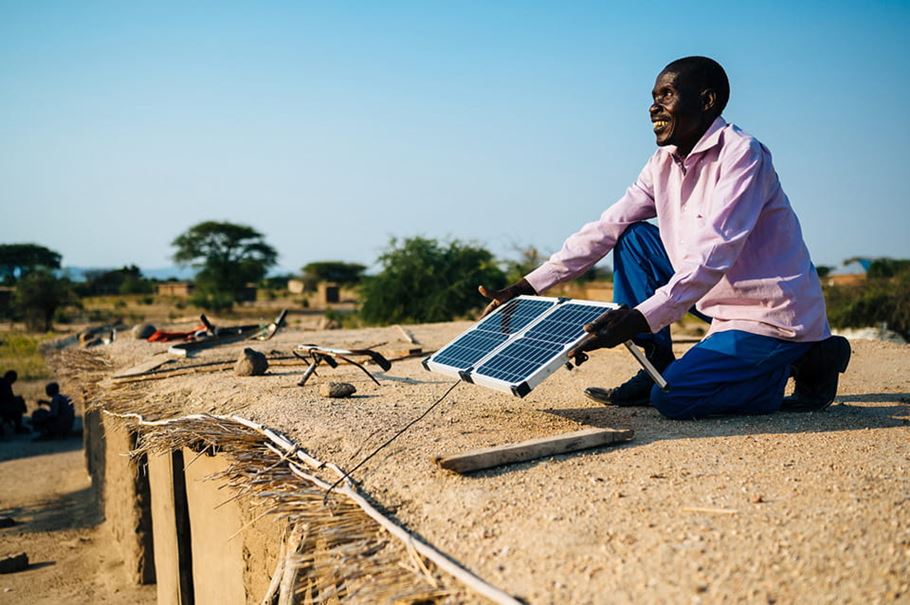
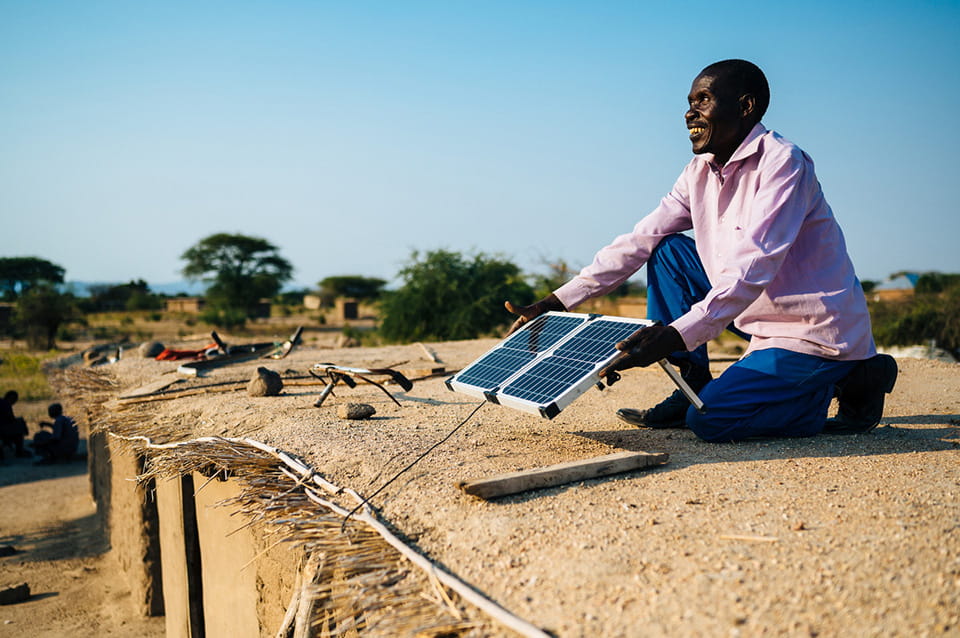
Lamec proudly cleans, maintains and positions the solar panel on the roof of his house. Credit: Tom Price - Ecce Opus/Tearfund
Brighter futures
The results were immediate. ‘The solar light has given me more time to work at night preparing food,’ says Joyce.
‘I used to lose a lot of my chicken to thieves,’ adds Lamec. ‘Wild animals used to come out at night, often hyenas. They are nocturnal animals so they are not comfortable with the light, so they stay away. It’s the same with scorpions. But now we have a light we are safer.’
But the thing that brings them most joy is how the solar light enables the children to read at night. ‘Before, it was so dark they could not study,’ shares Lamec. ‘We want them to have a good education and the light helps them to do that. We want them to get jobs – anything that will provide for them in the future.
‘Now the children and grandchildren come and study here at night. We have a light outside so they can stay out and play safely together. When I turn on the light, the children create a playground outside our home.’
‘The solar light will give the children a better life than we have had.’
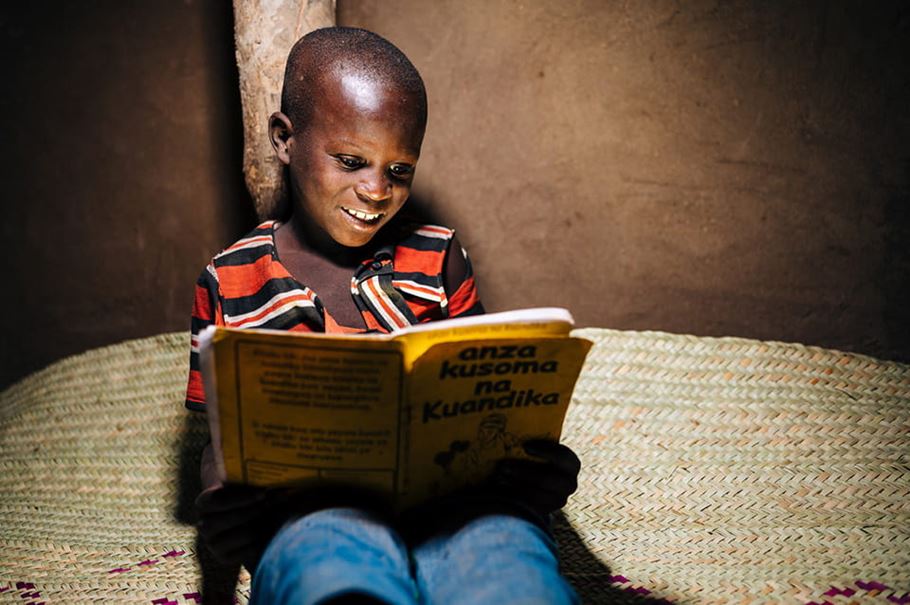
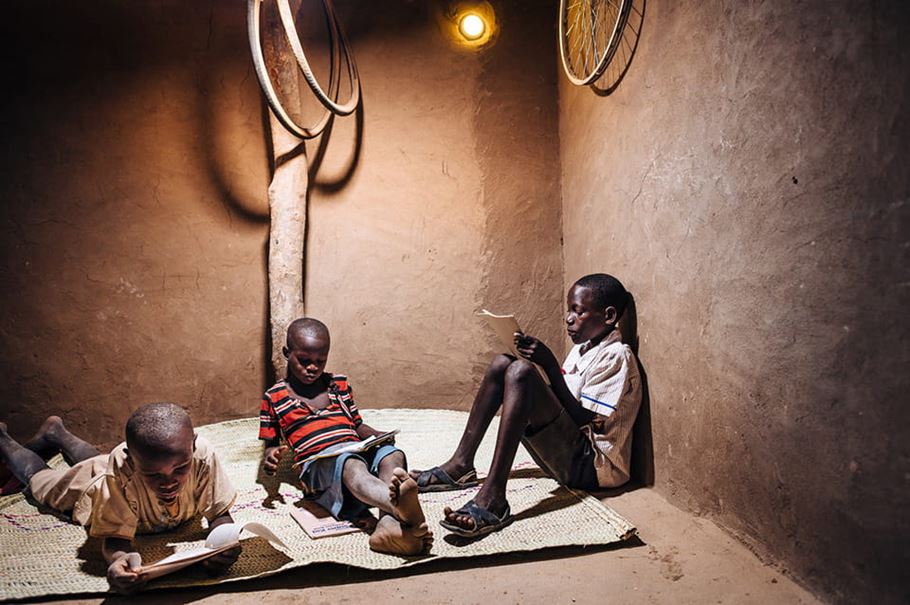
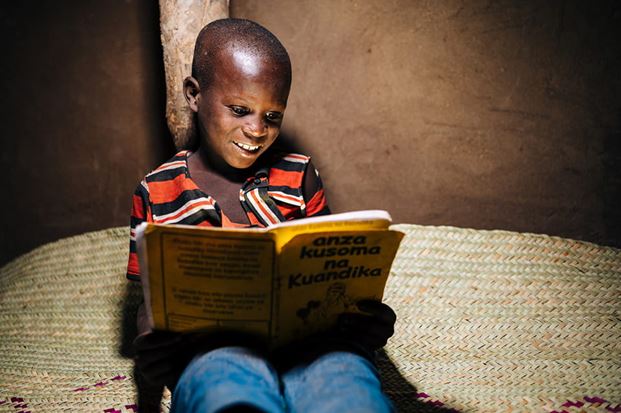
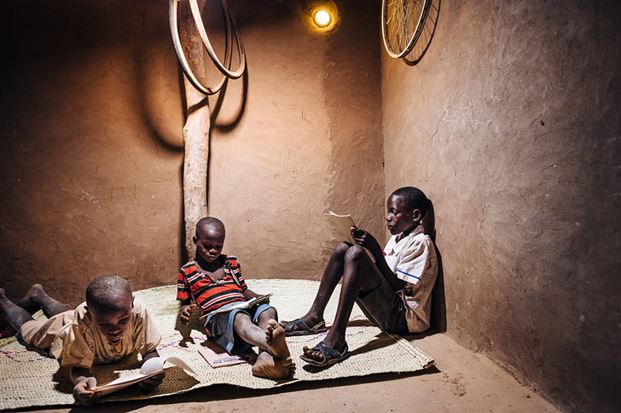
Lamec and Joyce's grandchildren (and other family members) can now study and read after dark thanks to the solar-powered lights in their grandparents' house. Credit: Tom Price - Ecce Opus/Tearfund
A light in the darkness
Solar lighting now lights up the whole of Joyce and Lamec’s village. Nearby villages have started to notice the lights at night, calling the community ‘Little Dodoma’ (the bright capital of Tanzania).
‘The church has lights now too,’ explains Lamec. ‘We can hold services at night. It’s so much better than using a torch!’
Lamec believes that the Pamoja groups and the solar lights will bring more people into the church. ‘It is very important because we are educating the community. Through this, we are preaching peace and offering a good life to families. It is a form of evangelism.’
Lamec is thankful for the huge impact these little lights are having. ‘I would like to thank all of you who have given to Tearfund so that we can have these lights. I will not forget you and will pray for you.’
PLEASE PRAY
Creator God
Thank you that you have provided us with abundant resources to use and enjoy. Thank you for the sunlight and for how it is being used in solar panels to help lift communities out of poverty.
We pray that even more households will be able to have access to solar lighting, and that they will not have to rely on dangerous alternatives. And we pray these families will find similar blessings and joy as Joyce and Lamec have done in this new lighting.
In Jesus’ name, amen.
This article references events that took place before the coronavirus crisis.
A version of this story first appeared in Tear Times, our free magazine that is published three times a year. Tear Times includes good news and features about Tearfund's work worldwide. You can sign up to receive it here.
Share this page
Share this page to spread the word and help support those in need.

Get our email updates
Learn about our work and stay in touch with Tearfund. Hear about our news, activities and appeals by email.
Sign up now - Get our email updates






